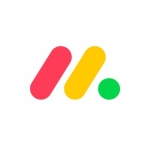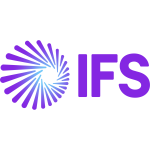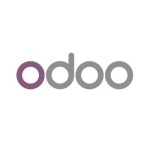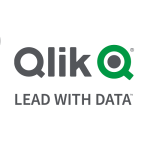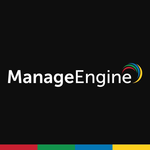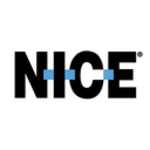What is our primary use case?
We are in support. Zendesk is being used by the IT group help desk and also by our team. We are an internal team that supports SharePoint, Salesforce and Tableau. So we use it for tickets for customers' issues. And then of course I see folks use it for the help desk for everyone else internally.
What is most valuable?
In terms of the most valuable features, we like the SLA options and the reporting feature because it runs a report.
Additionally, it has good management, the ability to sign tickets based on content, multi-channel support, the self-service portal, the integration with Salesforce, the setup process, and the product features as we are currently using them.
We go in there and we set up our requests for how we want it for each of our groups, meaning for the Salesforce team, and so forth. And then we change it accordingly, adding different features or attributes based on the need, and then run reports.
What needs improvement?
In terms of what could be improved, it was not easy to set up so we're only using a third of all of the features, and we wanted something that was easier to configure and set up. I asked my director how come we don't just keep Zendesk because it doesn't cost anything, we're already paying for the file. Why would we turn around and buy a Cadillac, like ServiceNow for IT? He said because we're only using some of the features. We don't have anyone who has the skill set to do the configuration. And the way the service model is with ServiceNow, we have a team that uses it in our organization. So we have the internal expertise instead of relying on a vendor for support.
For how long have I used the solution?
I have been using Zendesk Guide for probably three years. I believe we've been on the Core Optimization package.
What do I think about the stability of the solution?
Zendesk has been very stable. Which is why I was trying to understand why we were switching. The director said that there are other features that we want that ServiceNow offers and Zendesk doesn't. So instead of me learning about the new features, he wanted to go with ServiceNow from an infrastructure standpoint.
We are a service IT company. We have Zendesk for our employees internally and for external folks, but it's just used internally and ServiceNow is being used as a practice for external customers. They are also using it at ProKarma. They have the means so that experts can set up whatever we need. The director made a decision to go over and start using ServiceNow internally instead of Zendesk. I think he was more interested in ServiceNow from a roadmap perspective.
What do I think about the scalability of the solution?
In terms of scalability, that wasn't even something that we were considering, just that there were so many things that ServiceNow does that Zendesk doesn't from an IT infrastructure perspective. And we were looking at those features for future-state from the roadmap, security, asset management, and so forth.
We only have about 24 people interfacing with Zendesk. They are admin or developers. Then there's a few BA who are mostly either engineer support for the help desk IT or they belong to one of those internal groups that we support, Salesforce developers, SharePoint developers, or Tableau developers and architects. These are the people who need to resolve the tickets when there's an issue.
How was the initial setup?
Our IT director set it up. He said he has some basic things in there, a very simple workflow, an SLA, a change management, and I do a few reports. I have a couple of things where I set up the processes so that certain things get kicked back to IT to follow up on. But he said he set up something that was very simple and basic, and it's working for him. But he knew that there were more features that he should be using but he didn't know how to use them. And then we found out from the vendor that there were a lot of features that were grandfathered in and we're not even utilizing those features. At that point I think he made a decision that from an infrastructure perspective there are other features that he wanted that ServiceNow provides that Zendesk doesn't. I think it was more on the infrastructure and security sides.
We are still in a contract with Zendesk until the end of the year. And then they will make the decision whether to switch or extend the contract. So nothing has been done at this point.
It took less than three months to set up, maybe about eight weeks.
I don't know about the deployment because they haven't made any significant changes. All I know is it took about eight weeks to create the processes and the flows that we currently have.
What about the implementation team?
We did the implementation and maybe used some internal resources to set it up.
What's my experience with pricing, setup cost, and licensing?
The licensing is yearly and it's less than 30 grand, I believe. We had a lot of things that were grandfathered in, so we were using a lot of things - Zendesk Guide Professional, Zendesk Explore Professional, Zendesk Gather Professional and Zendesk Sunshine Lite. All of these things are not being leveraged today. So it looks like we were just using Zendesk Support Enterprise, and the vendor was sharing with us basically what we had and what we were using.
Which other solutions did I evaluate?
You really need to know how you are trying to service your customers to make a decision on whether or not to go with it. We were looking at three products, ServiceNow, Zendesk and Service Cloud. And you wanted the infrastructure component, the Cadillac version, right? All three different, too. That was another thing you really need to know - what are your requirements? What are your needs? And also look at your future roadmap. To me, those should have been the driving factors for making a decision. Just to clarify, those three solutions are the possible replacements if we decide to phase out the Zendesk Guide. We were looking at Service Cloud and I don't know if we made a decision on it because we are already using Salesforce.
They have a help desk for it, but it came with a cost where you had to pay for every user who actually wanted to use it. We have 3000 or 4000 employees. They also had some type of restricted user license and that can be very expensive if the company is growing. But that would be good. It would be something just to follow up on to find out with ServiceNow.
The total cost of ownership was a significant differentiator for Zendesk. I thought they were very reasonable. ServiceNow is very expensive, and adding each component every time you want to add a module and you're taking a lot of money. And they still decided to go with it.
One of the things that they showed me in ServiceNow is that they have an asset management component. That was pretty cool. So when you assign a computer to someone, they actually had a picture and they basically had a little card. Anyway, it was easy to click on and set up. I thought that would have been nice if they had some type of asset management component. I think we were using Salesforce to do asset management. Anything that's related to the HelpDesk, where they're tracking your device, your phone, that kind of stuff. So, it would be nice if that was included.
What other advice do I have?
To be honest with you, I thought Zendesk was a very good product. I didn't understand why we were moving to something else when we weren't using all of the features. Usually you use everything and then you outgrow that solution and look for a new solution. But to me that wasn't the case. So the biggest lesson for me was all three products. This is not an apple to apple comparison. You have to know what your requirements are and the roadmap, which is what I mentioned, but I didn't feel that Zendesk fell short at all. I felt management was making a decision without knowing what the future roadmap looked like. Meaning, when I say, "What do you want for the future?", "I don't know, but we are thinking about the infrastructure component" and then they decided to go off and do ServiceNow.
So I guess my lesson learned is to make sure your requirements and your future-state roadmap are all in alignment with your strategy. And I didn't feel that that was the case because I felt that they were making the decision without any ROI analysis to back it up. I'm being honest. That's how I felt. But I felt Zendesk didn't fall short. So what's the issue? And they just said, "We don't know how to do all of this stuff, and we already have an internal group that uses ServiceNow with the infrastructure components. So we're going to go with that product." I said, "it is going to cost a lot of money. They said they were okay with that. They thought that they could still bring down the cost based on their usage. And they went with it.
On a scale of one to ten, I would give Zendesk Guide a seven.
To make it a ten, they should offer some more teachers to compete with the other folks for Help Desk, and other components like asset management. That was another thing that Service Cloud does. It's totally different. I had a feature matrix that showed me those comparisons. There was something that Service Cloud does that makes them more integrated. There was an issue with integration between Salesforce and Zendesk, but the vendor said they fixed that issue and now the integration should work. So that was another concern about just integrating with the internal tool, making sure it's an easier API connector, making it easier to integrate with other tools.
Which deployment model are you using for this solution?
Private Cloud
Disclosure: My company does not have a business relationship with this vendor other than being a customer.









